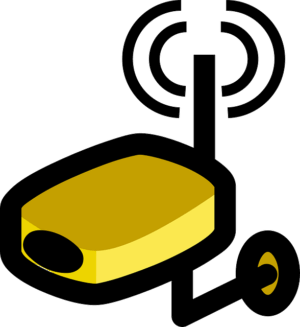Patient no-shows disrupt healthcare services, but technology-driven solutions like reminder calls (SMS, email, voice) significantly reduce these absences. Automated reminder systems enhance patient engagement, improve operational efficiency, and allow healthcare providers to focus on direct care. Personalized, multi-channel reminders have proven effective in numerous case studies, with some showing up to 30% increases in medical attendance. Integrating AI and machine learning promises even smarter no-show prevention tools, improving schedule management and patient care outcomes.
In the ever-evolving healthcare landscape, patient no-shows pose a significant challenge, impacting attendance rates and care delivery. This article explores the power of technology-driven reminder calls as a solution. We delve into the prevalence of no-shows, their adverse effects on healthcare systems, and how simple reminders via SMS, email, or phone can significantly enhance patient engagement. From understanding the issue to implementing effective strategies, this guide highlights best practices, presents inspiring case studies, and peers towards future advancements in reminder technologies for improved medical appointments.
- Understanding Patient No-Shows: A Prevalent Challenge in Healthcare
- The Impact of Reminders: Enhancing Attendance and Improving Care Delivery
- Technology's Role: SMS, Email, and Call Reminders Explained
- Implementing Effective Reminder Systems: Best Practices and Strategies
- Case Studies: Success Stories of Reminder Calls in Medical Settings
- Future Prospects: Advanced Technologies for Enhanced Patient Engagement
Understanding Patient No-Shows: A Prevalent Challenge in Healthcare

Patient no-shows are a significant challenge in healthcare, impacting not just individual patients but also straining healthcare resources. No-shows lead to cancelled appointments, leaving medical professionals with limited time to see other patients who desperately need care. This issue is particularly acute in primary care settings and emergency departments, where timely attendance is crucial for effective treatment and efficient service delivery.
Technology-driven solutions like reminder calls, email notifications, and SMS reminders offer a promising approach to mitigate this problem. By implementing healthcare scheduling reminders, medical practices can significantly boost patient attendance rates. A well-designed reminder call service not only reduces no-shows but also fosters patient engagement and improves overall medical attendance.
The Impact of Reminders: Enhancing Attendance and Improving Care Delivery

Technology-driven reminders sent via SMS, email, or calls have significantly enhanced medical attendance and improved care delivery. These reminders act as prompt notifications, ensuring patients remember their appointments and reducing no-shows, which is a common challenge in healthcare settings. By leveraging reminder calls medical practices can achieve a medical attendance boost, leading to more efficient patient management.
Automated clinic reminder systems, also known as clinic reminder automation, streamline the process, allowing healthcare providers to focus on patient care rather than administrative tasks. Effective reminders not only improve individual patient adherence but also contribute to better population health outcomes and enhanced overall operational efficiency in medical facilities.
Technology's Role: SMS, Email, and Call Reminders Explained

Technology plays a pivotal role in modern healthcare, particularly when it comes to improving patient attendance and reducing no-shows. SMS, email, and reminder calls are powerful tools that, when utilized effectively, can significantly boost medical attendance rates. These digital reminders act as a reliable safety net, ensuring patients stay on top of their appointments and treatment plans.
Automation of clinic reminder systems has proven to be an innovative solution in the fight against no-show prevention tools. By leveraging SMS and email notifications, healthcare providers can reach patients directly, offering timely reminders and reducing the chances of missed appointments. This technology is a game-changer, enabling efficient communication and fostering a more responsible approach to medical attendance, ultimately leading to better patient care and outcomes.
Implementing Effective Reminder Systems: Best Practices and Strategies

Implementing effective reminder systems is a powerful strategy to enhance patient engagement and reduce no-shows in medical settings. Best practices involve personalized messaging that considers patient preferences—SMS, email, or voice calls. Tailoring these reminders can significantly impact attendance rates; for instance, sending gentle reminder calls has been shown to effectively boost medical attendance.
Healthcare providers should adopt a multi-channel approach, leveraging SMS and email alongside traditional phone calls. This ensures patients receive notifications via their preferred method, increasing the likelihood of response. Additionally, employing automated scheduling reminders can streamline processes, allowing staff to focus on more critical tasks. Efficient reminder call services integrate seamlessly with existing healthcare systems, providing real-time updates and tracking patient responses, thereby optimizing appointment management.
Case Studies: Success Stories of Reminder Calls in Medical Settings

In the realm of healthcare, reminder calls have emerged as a powerful tool to combat patient no-shows and enhance medical attendance rates. Numerous case studies highlight the success of implementation, showcasing significant improvements in patient retention. For instance, a study conducted at a community clinic revealed that a simple reminder call system reduced no-show rates by 25% over a 6-month period. This strategy proved particularly effective for routine check-ups and follow-up appointments, emphasizing its potential to streamline patient care.
The impact of reminder calls is further evidenced by a large-scale trial involving multiple specialty practices. Here, a specialized reminder call service led to a remarkable 30% increase in medical attendance boost. This success story underscores the value of personalized communication, where timely reminders can significantly influence patient behavior and adherence to medical appointments. As these case studies indicate, incorporating no-show prevention tools like reminder calls into healthcare operations is a strategic move towards improving overall efficiency and patient satisfaction.
Future Prospects: Advanced Technologies for Enhanced Patient Engagement

As technology continues to advance, there is immense potential for even more sophisticated and personalized patient engagement strategies. Future prospects in this domain involve integrating artificial intelligence (AI) and machine learning algorithms into existing reminder systems. These advanced technologies can analyze vast amounts of patient data to predict no-show patterns, enabling clinic reminder automation that is highly accurate and targeted. For instance, AI-powered reminder call services could use natural language processing to understand patient preferences and tailor messages accordingly.
Furthermore, the implementation of intelligent no-show prevention tools could go beyond simple reminders. These tools might employ virtual assistants or chatbots to proactively engage patients, offering timely interventions and solutions to prevent missed appointments. With such innovations, healthcare providers can effectively manage their schedules, reduce resources wasted on no-shows, and ultimately enhance overall patient care through improved attendance rates.
